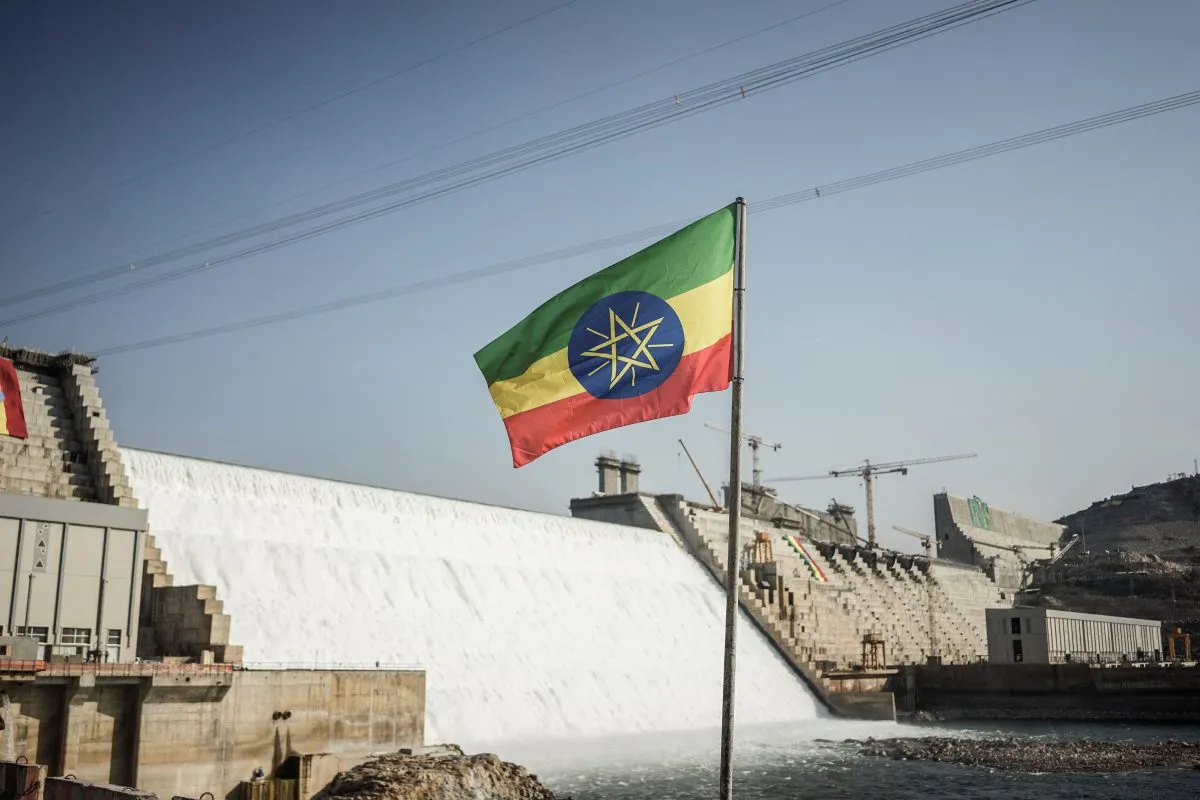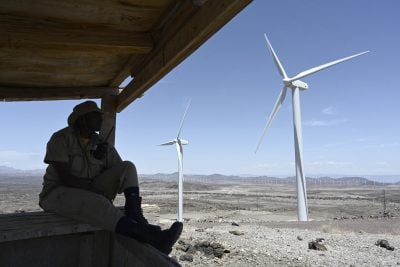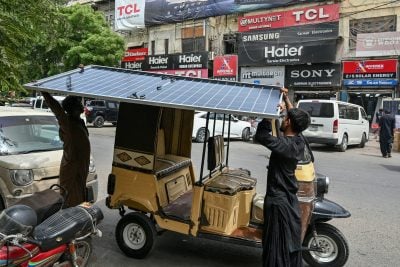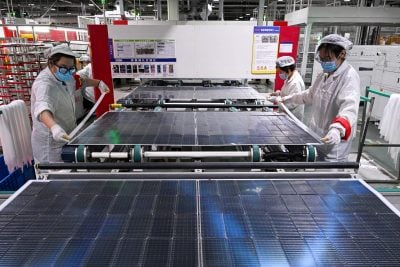Representatives from fifty-two African countries, as well as organisations and financial institutions from across the continent, gathered in the Egyptian capital last week for the Aswan Forum for Sustainable Peace and Development.
The timing could not be more appropriate for an event emphasising the security risks linked to the environment and the management of natural resources: on June 17, two weeks before the summit, satellite pictures captured Ethiopia preparing for the fifth filling of the Grand Renaissance Dam (GERD) that has for years been a major concern for Egypt.
GERD has sparked fears among Egyptians since its first filling back in 2020: the Nile contributes 90% of Egypt’s fresh water and is essential to its irrigation system and power generation.
However, Ethiopia argues that filling the dam is essential for its power generation needs and economic development: it believes the dam could more than double its electricity output. While a declaration of principles signed in Khartoum in 2015 between Egypt, Ethiopia, and Sudan concluded that fillings should be done in coordination with all three countries, on-off negotiations over the sharing of Nile waters again reached a deadlock last December with no binding agreement nor roadmap.
Top of the diplomatic agenda
Ethiopia concluded what Prime Minister Abiy Ahmed referred to as the “fourth and final filling” in 2023, but the potential for yet another filling has returned the issue to the top of the diplomatic agenda.
With bilateral channels currently dormant, the Aswan Forum was a chance for Egypt to put its concerns front and centre, says Hesham El-Askary, professor of earth systems at Chapman University, a private university in California.
“By framing the discussions around broader climate-related challenges, Egypt can indirectly address the GERD issue. These interactions can serve as a venue for Egypt to voice its concerns and seek support for its position on the GERD, highlighting the potential risks associated with unilateral actions on trans-boundary water resources,” he says.
As the fifth filling approaches, Egypt already grapples with the consequences of the previous ones, says Hesham.
“Environmentally, the reduced downstream flow of the Nile has decreased overall water availability, critically impacting domestic consumption, agriculture, and industry,” he says.
“Domestically, water scarcity has potential implications for Egypt’s stability, with the risk of public discontent and social unrest, particularly if agricultural productivity declines and food prices rise,” he argues, alluding to the difficulties experienced by Egyptians already suffering from an economic crisis, inflation, and foreign currency shortages.
Besides the hit to agriculture and increasing food prices, another fear lies in the effects on Egypt’s hydropower generation capabilities, with more fillings “potentially leading to energy shortages and increased costs for alternative energy sources,” says the professor.
Egyptians are already experiencing daily three-hour-long electricity cuts, which the government said were necessary to maintain the stable operation of power generation stations as increasing heat drives up energy consumption. [These cuts were suspended on 21 July until mid-September.]
Ethiopia has denied that it has any intention of reducing its neighbours’ water supply access. A joint communiqué between Egypt’s President Sisi and Ethiopian Prime Minister Abiy Ahmed in July 2023 said that “Ethiopia made clear its commitment, during the filling of the dam during the hydrological year 2023-2024, not to cause significant harm to Egypt and Sudan in order to provide the water needs of both countries.”
“Ethiopia’s main interest is to bring light to 60% of the population who is suffering in darkness, to save the labour of our mothers who are carrying wood on their backs in order to get energy,” Abiy said at the dam’s switching-on in 2022.
“As you can see, this water will generate energy while flowing as it previously flowed to Sudan and Egypt, unlike the rumours that say the Ethiopian people and government are damming the water to starve Egypt and Sudan,” he argued.
Nevertheless, Egypt sees the issue as critical to its national security, to the point that a year ago it conducted naval military drills alongside Sudan. Egypt and Ethiopia have also clashed over Ethiopia’s memorandum of understanding with Somaliland earlier this year, under which the breakaway region of Somalia would agreed to lease coastal land to Ethiopia, potentially in return for future sovereign recognition.
Peaceful cooperation?
While military action to solve the issue has long been threatened – high-level Egyptian sources told the outlet Al-Araby Al-Jadeed in June that “a military action against Ethiopia to halt the operations of the dam has not been decided yet” – spaces such as the Aswan Forum provide opportunities to keep lines of dialogue open, analysts say.
“By organising a high-profile forum focused on climate-related peace and sustainable development, Egypt positions itself as a proactive leader in addressing broader regional challenges, which can indirectly influence the dynamics around the GERD dispute,” says Hesham El-Askary.
“It provides Egypt with a platform to highlight the potential consequences of unilateral actions on shared water resources, fostering a narrative that encourages cooperation and multilateral dialogue.”
“Multilateral cooperation means that, fundamentally, there is some level of trust,” Ismaeel Tharwat, visiting assistant professor of economics at The American University in Cairo, told African Business.
“If there is trust, then on top of that, economic cooperation can be built: companies deal with each other, trade flows back and forth, [there is] political stability… and so there should be peace.”
Tharwat said that cooperation is essential to pave the way for more effective economic activity and peace in the region.
“Since Covid-19 we have seen a realignment of supply chains around the world, which means that there is great potential now for African countries, companies and entrepreneurs to step in, and if they do, they’re probably going to have very high returns because they are going to be filling big needs in Africa,” Tharwat says.
Egypt and Ethiopia’s recent decisions to join the BRICS bloc of emerging market nations shows that both sides have a vested interest in peaceful economic and diplomatic cooperation beyond the GERD dispute, he adds.
“We are seeing a political realignment as we saw both Egypt and Ethiopia joining BRICS last January. Once incentives are aligned in terms of wanting to start business together, automatically there are more incentives for peace.”
Want to continue reading? Subscribe today.
You've read all your free articles for this month! Subscribe now to enjoy full access to our content.
Digital Monthly
£8.00 / month
Receive full unlimited access to our articles, opinions, podcasts and more.
Digital Yearly
£70.00 / year
Our best value offer - save £26 and gain access to all of our digital content for an entire year!
 Sign in with Google
Sign in with Google 




